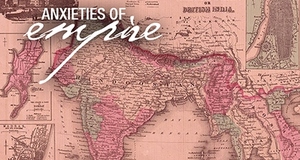From Cornell International Affairs Review VOL. 7 NO. 1India and Nigeria: Similar Colonial Legacies, Vastly Different Trajectories: An Examination of the Differing Fates of Two Former British ColoniesExperiences Since IndependenceFormative Events Upon Gaining IndependenceAlmost immediately upon gaining independence, India experienced a major threat to national unity and stability. The country prepared to divide along the borders of two of its rare overlapping cleavages to create a separate Pakistani nation with a Muslim majority (one in the west corresponding to the borders of presentday Pakistan and one in the east corresponding to present-day Bangladesh).31 Though one might view India's Partition—particularly when considering the massive violence between Hindus and Muslims that accompanied it—as a mark of extreme political instability, interestingly, the partition has seemingly effectively dealt with India's overlapping cleavages. Indeed, the cleavages that remain are essentially cross-cutting (with the exception of Kashmir), rendering a relatively stable contemporary Indian nation. Similarly, as a direct result of the same Hindu-Muslim riots that accompanied independence and generated "fears of destabilizing secessionist movements," Indian leaders felt compelled to give precedence to "the preservation of national unity" over states' rights. This fact is evidenced by the resultant Indian constitution that was "explicit in asserting the unity and primacy of the central government".32 This central government's empowerment even prevented future secessionist threats by promoting participation within the framework of Indian federalism to accomplish regionally specific goals. For example, rather than continue to press for autonomy, the party that initially called for an autonomous state of "Dravidstan" in southern India decided instead to focus on capturing a block of seats in the national Parliament to achieve its aims. In other words, party members chose to act from within and through India's federalist system.33 The existence of Nigeria's natural Resources is the chief source of its political instability Thus, the partition not only dealt with two of India's cross-cutting religious cleavages, but it also promoted political stability by leading to a greater empowerment of the central government. Indeed, India has enjoyed relatively peaceful political relations and stability since then, whereas most of Nigeria's political instability both historically and today stems from its intense regional competition (often over resources), which might not exist had Nigeria similarly experienced partitions or secessions of particular regions. However, in Nigeria, partly due to unequal resource division, secession of any of the regions is highly unlikely. 1967 did see the attempted secession of Nigeria's Eastern Region, an attempt that "ballooned into a 30-month civil war…that caused more than two million Biafran deaths—mostly children".34 This bloody conflict serves as further evidence of the instability and violence that is all too prevalent in Nigeria and of which ethno-regional competition is a direct cause. Natural ResourcesParadoxically, Nigeria's heavy endowment with natural resources is the very reason secession, which is typically a very destabilizing event, is unlikely in Nigeria— yet, the existence of these natural resources is concurrently the chief source of its political instability. Nigeria is one of many in the ranks of those countries suffering from a "resource curse"— for Nigeria, it is primarily oil, referred to as "the curse of black gold".35 Indeed, Nigeria possesses over six times the oil reserves that India possesses (U.S. EIA). In relative terms, Nigeria's sizeable oil resources are even more marked considering that India is over seven times as populous and over three and a half times as large geographically as Nigeria is. Because India has never possessed a comparably abundant, coveted natural resource, its leaders have long been invested in its population being productive. Indeed, as Sil summarizes, "India's GDP growth has come from all sectors, ranging from agriculture and manufacturing to services and information technology".36 Reliance on service sectors has also led the government to invest in its population's education, a trend not paralleled in Nigeria. Nigeria's leaders, on the other hand, have not needed to concern themselves with having a productive population. The result has been that strong relationships have not been promoted among leaders and the population at large because the population is often "bought off" using oil wealth in return for stability. Early Nigerian ruler Ibrahim Babangida, for example, was known for "buy[ing] off opposition…with state largesse and outright bribery," a practice that came to be known as "settlement" and that became so ubiquitous as to be "turned into a national pastime by subsequent regimes".37 Unsurprisingly, this practice of buying off opponents and disgruntled populations has led to instability in many cases when oil prices have fallen and oil wealth could not be used in such a way. Most of Nigeria's oil fields are located in the Niger Delta, which is in the southern region of the country Despite abundant experience with domestic instability, Nigeria's leaders have not developed effective ways of dealing with restive populations and instead have resorted to—and continue to resort to—repression and violence.38 Oil has been a further source of increased instability because oil resources are concentrated in the South. This further polarizes and reinforces ethno-regional identities and drives regional competition. Even though the natural resources that India possesses are also for the most part regionally concentrated (for example, its oil, natural gas, and uranium), this fact has not become a source of regional competition in India largely due to its strong central government that controls the allocation of its resources and the allocation of revenues from its resources. Contrastingly, in Nigeria oil has contributed to unrest and instability revolving both around the high level of environmental destruction oil production creates and the way that the resulting revenue and resources are distributed. Often, this unrest arises among the smaller minority groups from whose land the oil is taken. Because of the structuring of Nigeria's diversity, with ethnoreligious differences coinciding with regional boundaries, it is often the case that just one or a few tribes are affected by the oil extraction. These minority groups experience the worst ills of the associated environmental degradation but often share in little of the resultant economic rewards. One well-known example is the 1993 Ogoni uprising that led to the hanging by the Nigerian government of environmental activist and writer Ken Saro-Wiwa and eight of his colleagues. This minority group's uprising was precipitated by a combination of political marginalization by the government and environmental degradation by oil companies.39 Similarly, there has been recent attention paid to the "ongoing political and social strife in Nigeria's delta region" revolving around the Royal Dutch Shell companies' oil extraction in the region.40 Political and Economic PoliciesEach nation's political and economic policies undertaken upon decolonization have had lasting implications on their subsequent stabilities as well. Once independence was gained, India adopted a "third way" identity and mentality as Jawaharlal Nehru, independent India's first prime minister, set out to build the nation-state. This identity was nationalistic in character, celebrating India's identity as a leader of the non-aligned Third World in the Cold War.41 India's essentially independent foreign policy and "conscious efforts to balance elements of capitalism and socialism" provided Indians with "a sense of identity and pride within the international order during the years of the Cold War," a crucial period of India's national development.42 Nehru's "third way" was also characterized by the state sector owning all heavy industry. Thus, unlike Nigeria, India's federalist system led to a strong center with control of the country's resources and, significantly, with the right to intervene in state affairs.43 Also significantly, Nehru's vision of the new Indian nation was characterized by secularism. Importantly, in the context of India, secularism implies opposition to communalism. As Sil writes, "Aside from the formal equality of all citizens before the law, secularism in India implies that politics should revolve around the interests of individuals rather than of groups identified by the communal ties of caste, region, or religion".44 Thus, India's secularism has served to further deemphasize potentially divisive group identities in favor of more nationalistic principles centered on individuals.viii Also significant for the purposes of this paper, India's understanding of secularism has led to its institution of a "reservations" system, a formal system aimed at leveling the playing field for minorities and previously disadvantaged groups; Sil describes this system as "India's version of affirmative action".45 This policy has thereby allowed India to accommodate in important ways its Muslim and other minority religious populations as well as members of its lowest castes. There is no comparable "reservations" system in Nigeria, for the protection or privileging of minority and disadvantaged groups, which perhaps partially explains the commonness of the extralegal actions taken by minority tribes (e.g., the aforementioned Ogoni uprising). The particular importance of India's universal secularism becomes clearer when contrasted against Nigeria's legal framework. Within Nigeria, it is still a source of tension and confusion whether the state itself is secular or not,46 and conflicts between secular and Shariah laws continue to create instability. Shariah law was introduced to Nigeria's nine northern states in 2000 and 2001, and another three states have since instituted Shariah law for Muslims wishing to use them. Nigeria's other twenty-five states remain governed by secular law.47 Indeed, these regionally differing legal systems are yet a further indication of the extreme primacy afforded to regionalism and of the lack of Nigerian national unity. They are also a source of instability, since the two law systems clash at times. This was observed quite recently, in July 2013, in a highly charged parliamentary debate over a constitutional amendment intended to set the age at which Nigerians can renounce their citizenship. This proposed amendment had wider implications because several Muslim representatives were concerned about conflicts with Shariah law, which decrees that a woman is of age when she gets married.48 The debate sparked protests in the country due to its connection with child-marriage and age-of-consent laws—which have been a recurring source of tension, predating this particular parliamentary debate.49 In contrast, upon gaining independence Nigeria pursued a course that merely continued to build upon colonial legacies. Primordial identities and the dominance of local strong men were reinforced as regions retained and continue to retain their immense political power relative to the center. Nigeria has also retained its ethnoregional political parties and separate models of suffrage for the North and South. Even in its attempts to economically "minimize the vestiges of neocolonialism and the country's dependency" on foreign corporations through such measures as the Nigerian Indigenization Policy, the "most enduring consequence" of such policies has instead been "the politicization of Nigerian capitalism, in that one section of the country, the Yoruba, benefitted the most…and the worst hit were the Igbos." Furthermore, the mixed-economy policy only "became a conduit for capital accumulation by the political elite".50 Thus, preexisting differences have merely been exacerbated by Nigeria's economic policies, which have layered socioeconomic disparities atop them. As mentioned, Nigeria continues to lack a strong central government, and acts made by the central government often generate discontent from significant proportions of the population. Hostility largely stems from mistrust of government leaders belonging to a different ethno-regional group, and this frequently lead to coups and violence. The persisting importance of ethno-regional parties is evidenced by the unofficial "zoning" agreement that has been adopted in Nigeria, providing for a rotation of the presidency every two terms between the North and the South. This practice demonstrates the "ethnic mistrust" embedded in Nigeria's pluralism that has "informed the need to assure every major group of a turn at the presidency and other top posts".51 Today, local tribes are even more visible and active, especially in conflicts over oil (e.g., again, the aforementioned Ogoni uprising). The practice of political "zoning" demonstrates the ethnic mistrust embedded in Nigeria's pluralism There has also been recurrent religious violence, including a sharp rise in Muslim extremism, which has been deeply troubling to national stability For example, over 500 people—mostly civilians—were massacred in March 2010, in the region that lay at the crossroads of Nigeria's Muslim north and predominantly Christian south. Sectarian violence in the region has killed thousands in the past decade.52 The radical Muslim sect known as Boko Haram, an extremist group that represents Nigeria's biggest security threat and that is gaining in prominence, also recently bombed UN headquarters in Nigeria, in August 2011.53 And, as recently as May 2013, Nigerian President Goodluck Jonathan declared a state of emergency in a vast area of northeast Nigeria. He admitted in a nationally televised speech that "the nation had lost control of some villages and towns to extremist fighters," who had already killed more than 1,600 in the region in 2010 alone.54 This speech was followed up less than a month later with thirteen more killings by Islamic extremists in the region.55 Final Thoughts: Applying the "East Asian Model" to India and Nigeria?Recently, several East Asian countries have undergone rapid economic growth and have experienced remarkable political stability throughout the process. The achievements of these nations—most prominently the "Asian Tigers" of Taiwan, South Korea, Singapore, and Hong Kong— have garnered attention, prompting discussion as to whether their practices may provide a generalizable model" that could be adopted and implemented by struggling developing nations elsewhere in the world.ix Notably, in the context of this paper, they have also experienced colonialism and are plagued by its common legacies—indeed, Singapore and Hong Kong even share with Nigeria and India a history of British colonization. (Alternatively, Korea experienced Japanese colonization, and Taiwan had a number of colonizers, of which England was not one.) However, I assert that it is highly doubtful whether these nations could offer a model that could successfully be applied to Nigeria or India, given certain inherent features of these nations and certain structural features that now exist. The inherent and extreme diversity of Nigeria's and India's populations presents a potentially insurmountable obstacle to successfully implementing the East Asian model. Firstly, the inherent and extreme diversity of Nigeria's and India's populations presents a potentially insurmountable obstacle to successfully implementing the East Asian model. Part of the reason the model—which is characterized by central planning under authoritarian rule— works well in East Asian countries is because it is functioning in a homogenous society, which makes trust of leaders less problematic and makes having unified goals (two essential prerequisites in order for this model to function) much easier. Furthermore, in India, which already has a functioning and relatively stable democracy based on coalition politics, one might question whether a move toward the East Asian model would even be an improvement. Rather, it seems regressive— at least from a traditional Western viewpoint— to move away from the current functioning democracy towards authoritarianism. Given India's diversity, coalition politics is both healthy and promotes stability. More authoritarian rule could be potentially destabilizing, leading certain groups to feel marginalized and minority voices to be overshadowed. Nigeria, which shares with India the difficulties posed by heterogeneity in terms of its ability to effectively or constructively adopt the East Asian model, would have increased difficulty adopting this model because its diversity is organized regionally and is deeply competitive. This structure renders Nigeria's goals even less unified, and its overlapping cleavages further hinder trust of leaders.x Thus, while Nigeria could benefit from at least a slightly stronger central government (which adoption of the East Asian model would certainly provide) to ameliorate some of the problems that arise from its extreme regionalism, a lack of unified goals and a lack of trust would decrease the likelihood of the East Asian model's chances of success. It appears Nigeria must find a more uniquely tailored solution to its present economic and political shortcomings, lest its population continue to suffer the array of woes to which they continue to be too frequently subjected.xi ReferencesAdeleye, Adisa. "Critical observations on Nigeria's economic and political stability." Vanguard 1 Jun. 2012: <http://www.vanguardngr.com/2012/06/critical-observations-on-nigerias-economicand-political-stability/> Cayford, Steven. "The Ogoni uprising: Oil, human rights, and a democratic alternative in Nigeria." Africa Today Apr-Jun. 1996: <http://www.jstor.org/stable/4187095> Chandra, Kanchan. "Ethnic Parties and Democratic Stability." Perspectives on Politics 3, no. 2 (2005): 235-252. Also available at <http://politics.as.nyu.edu/docs/IO/2587/Chandra2005-EthnicPartiesandDemocraticStability.pdf> Faul, Michelle. "How a clash of Nigeria's secular, Islamic laws sparked an age-of-consent debate." Associated Press 23 Jul. 2013. <http://www.ctvnews.ca/politics/how-a-clash-of-nigeria-s-secularislamiclaws-sparked-an-age-of-consent-debate-1.1379522> Iheduru, Okechukwu. "Nigeria." Comparative Politics: Interests, Identities, and Institutions in a Changing Global Order. 3rd edition. Eds. Kapstein, J; Lichbach, M. Cambridge: Cambridge University Press, 2008. 535-587. Lee, Jinyong; Peter LaPlaca; and Farhad Rassekh. "Korean Economic Growth and Marketing Practice Progress: A Role Model for Economic Growth of Developing Countries." Industrial Marketing Management 37, no. 7 (October 2008): 753–757. <http://dx.doi.org/10.1016/j.indmarman.2008.09.002> Lipset, Seymour Martin. Political Man: The Social Bases of Politics. Garden City, NY: Doubleday, 1960. Moses, Dele. "Nigeria not secular, but multi-religious state – Oyedele." Daily Independent. 07 Nov. 2013. <http://dailyindependentnig.com/2012/10/nigeria-not-secular-but-multi-religious-stateoloyede/> Newton, Kenneth and Jan W. van Deth. Foundations of Comparative Politics. 2nd edition. Cambridge: Cambridge University Press, 2010. "Nigeria unrest ‘recalls lead-up to 1967 Biafra war.'" BBC News 21 Apr. 2011: <http://www.bbc.co.uk/news/world-africa-13156508> "Officials: 67 dead in northeast Nigeria attacks." Moneycontrol.com 05 Nov. 2011: <http://www.moneycontrol.com/news/wire-news/officials-67-deadnortheast-nigeria-attacks_612336.html> Paris, Roland. At War's End: Building Peace after Civil Conflict. Cambridge: Cambridge University Press, 2004. "Shell's Nigerian Delta operations at risk." United Press International 26 Aug. 2010: <http://www.upi.com/Business_News/Energy-Resources/2010/08/26/Royal-Dutch-Shells-NigerianDelta-operations-at-risk/UPI-91581282859469/> Sil, Rudra. "India." Comparative Politics: Interests, Identities, and Institutions in a Changing Global Order. 3rd edition. Eds. Kapstein, J; Lichbach, M. Cambridge: Cambridge University Press, 2008. 367-417. Smith, David. "Hundreds dead as more religious violence hits Nigeria." The Guardian 08 March 2010: <http://www.theguardian.com/world/2010/mar/08/nigeria-religious-violence-jos> Tremblay, Reeta Chowdhari. "Kashmir's Secessionist Movement Resurfaces: Ethnic Identity, Community Competition, and the State." Asian Survey 49, no. 6 (November/December 2009): 924-950. doi: 10.1525/as.2009.49.6.924. Umar, Haruna. Associated Press. "Islamic Extremists Kill 13 in Northeast Nigeria." ABC News 08 June 2013: <http://abcnews.go.com/International/wireStory/islamic-extremists-kill-13-northeast-nigeria19355803#.UbVSWPbwJ74> U.S. Energy Information Administration (U.S. EIA). "Energy Profile of India," last updated 18 Mar. 2013. <http://www.eia.gov/countries/country-data.cfm?fips=IN> "Nigeria Country Analysis Brief," last updated 16 Oct. 2012. <http://www.eia.gov/countries/country-data.cfm?fips=NI> Image AttributionsBy Discott (Own work) [CC-BY-SA-3.0 (http://creativecommons.org/licenses/bysa/3.0)], via Wikimedia Commons By Peter489 (Own work) [GFDL (http://www.gnu.org/copyleft/fdl.html)], via Wikimedia Commons By Daderot (Own work) [Public domain], via Wikimedia Commons By World Economic Forum (Flickr: De-risking Africa: Goodluck Ebele Jonathan) [CC-BY-SA-2.0 (http://creativecommons.org/licenses/by-sa/2.0)], via Wikimedia Commons By Narendra Modi [CC-BY-SA-2.0 (http://creativecommons.org/licenses/by-sa/2.0)], via Wikimedia Commons By Chebyshev1983 [Public domain], via Wikimedia Commons Endnotes
Footnotes
Suggested Reading from Inquiries Journal
Inquiries Journal provides undergraduate and graduate students around the world a platform for the wide dissemination of academic work over a range of core disciplines. Representing the work of students from hundreds of institutions around the globe, Inquiries Journal's large database of academic articles is completely free. Learn more | Blog | Submit Latest in International Affairs |


















